Compote is one of the easiest dessert recipes you’ll ever come across. It’s also one of the healthiest. This simple dessert recipe, known as compote or “fruit soup,” includes dried apricots, dried plums, raisins and lemon juice. This chilled stewed fruit is naturally sweet and refreshing, a wonderful make-ahead dessert that goes well with almost any meal. Compote is dairy free, gluten free, and filled with healthy fiber. What a treat!
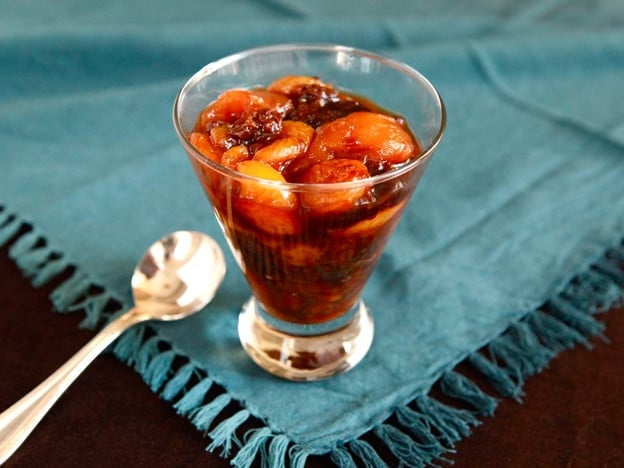
Not long after I started this blog, I wrote about a traditional Shabbat dinner cooked with my friends Etti and Bella Hadar. Etti had a family a memoir written by her late uncle, Dov Shimon Levin. As a soldier in the Jewish Infantry Brigade; he fought the Nazis during World War II. In his memoir, he wrote a detailed account of his life in the Pinsk region of Poland prior to the war. Being a lover of Ashkenazi cuisine, Uncle Dov wrote some amazing descriptions of the foods he enjoyed as a child. Etti and I pieced together a menu from the memoirs and recreated a traditional Polish Shabbat dinner using their family recipes. One of those recipes was for a dish he called marak perot – which is Hebrew for “fruit soup,” more widely known as compote.
Although most people call this dish compote, I love the term fruit soup… because it’s so accurate! The fruit is slowly simmered on the stovetop, just like a soup or stew. Once the fruit becomes tender and the juices thicken, the compote is chilled. It makes for a very refreshing dessert, a light and lovely way to end a heavy meal.
The compote recipe that appears here is from the Levin family memoirs. Once you understand the basic concept, feel free to improvise on the dish. For example, you can add your own favorite dried fruits and spices to change things up. Compote can also be pureed for a sauce-like texture.
Have you ever made compote before? What is your favorite way to prepare it?
Recommended Products:
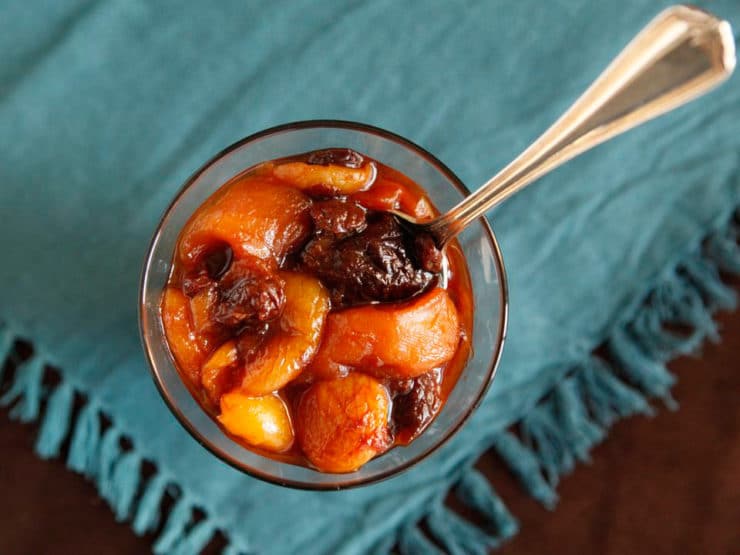
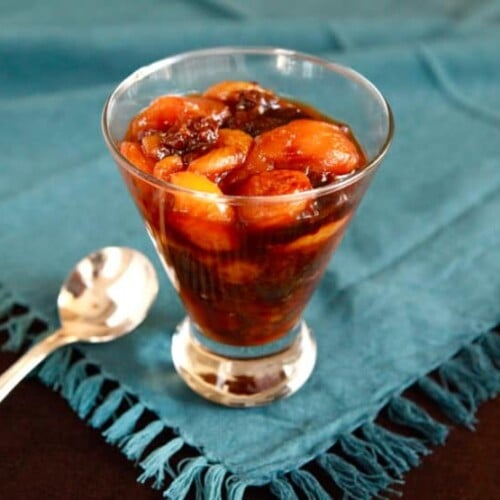
Compote
Ingredients
- 3 apples, peeled, cored and thinly sliced
- 2 cups dried plums
- 1 cup dried apricots
- 3/4 cup raisins
- 1/4 cup sugar (you may omit or use your favorite sweetener to taste if desired – sugar helps to thicken the juices)
- 1 1/2 tablespoons fresh lemon juice, or more to taste
NOTES
Instructions
- Place apples, dried plums, dried apricots and raisins in a pot and cover 4 cups of water. Bring to a boil, stir in sugar unitl dissolved.

- Reduce heat to medium low and cover. Simmer for 1 ½ hours, stirring occasionally, until the water becomes a thick syrup and the prunes begin to dissolve. Remove the lid for the last 10-15 minutes of cooking so the liquid reduces.

- Remove fruit from heat and let it slowly return to room temperature. Squeeze the fresh lemon juice in, adding more to taste if desired. The lemon juice brightens up the flavor tremendously.Put the fruit in the refrigerator until it is fully chilled, at least 2 hours. Serve by ¾ cup portions in glass compote dishes.

Nutrition

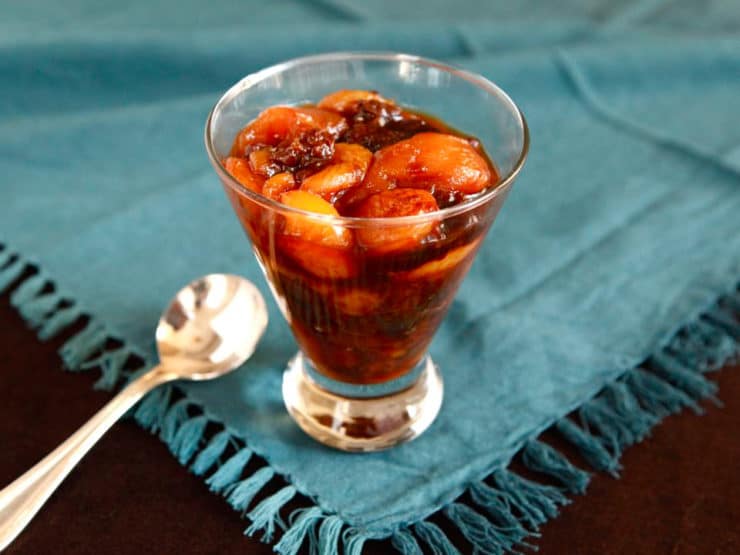

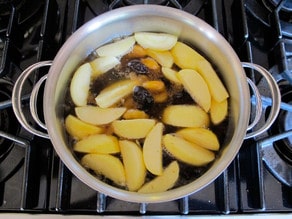
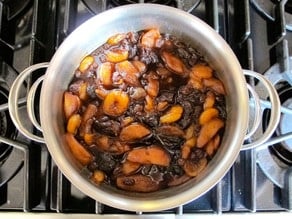
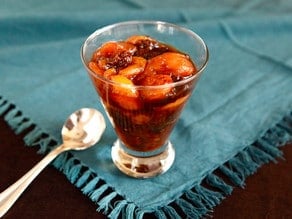


How long can you leave this in refrigerator?
Thanks,
Hi Marcia! Sugar and lemon are natural preservatives. I would feel safe to refrigerate this for up to 5 days.